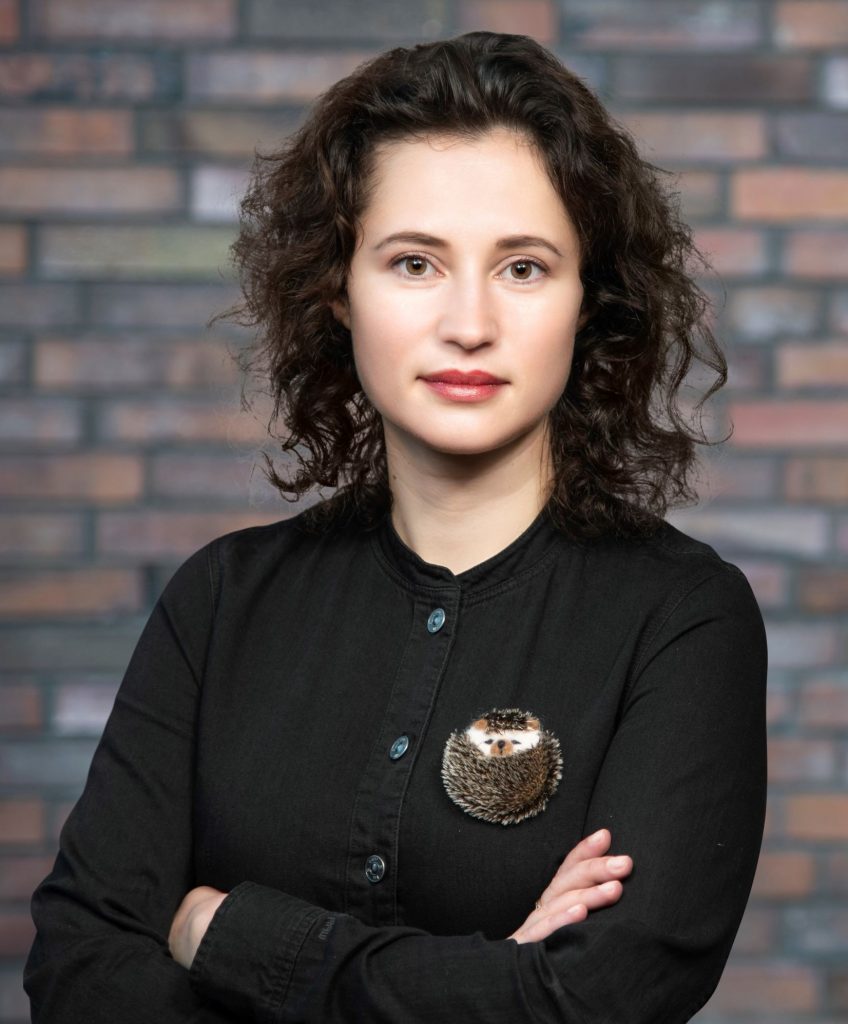ERC Starting Grant for HITS group leader
Ganna Gryn’ova, head of the Computational Carbon Chemistry group at the Heidelberg Institute for Theoretical Studies, has been awarded approximately €1.5 million, to be issued over a five-year period.
Computational chemist Ganna Gryn’ova, head of the Computational Carbon Chemistry (CCC) group at the Heidelberg Institute for Theoretical Studies (HITS), has been selected to receive a prestigious scientific grant: The European Research Council (ERC) awarded her an ERC Starting Grant of approximately €1.5 million for her project PATTERNCHEM. Dr. Gryn’ova’s proposal is one of only 10% of projects that are selected for funding. “We are very happy for Ganna and also proud of this success story,” stated HITS Scientific Director Frauke Gräter, “because these grants show the high quality of our research, and now, researchers in six of thirteen groups work on or participate as a beneficiary in an ERC Grant.”
Hailing from Ukraine, Ganna Gryn’ova earned her PhD in computational chemistry at the Australian National University in 2014, followed by a postdoctoral fellowship at École polytechnique fédérale de Lausanne, Switzerland. In April 2019, she established the CCC research group at HITS. Among other accolades, Dr. Gryn’ova has received a Marie Skłodowska-Curie Actions Individual Fellowship (2016) from the European Commission and is a member of the “Elisabeth Schiemann Kolleg” of the Max Planck Society (as of 2021). She is also a co-investigator for the German Research Council’s Sonderforschungsbereich (Collaborative Research Center) “SFB1249: N-heteropolycycles as functional materials” as well as a member of the Interdisciplinary Center for Scientific Computing (IWR) at Heidelberg University.
Harnessing patterns in functional materials
Functional organic materials possess myriad chemical and physical properties that are valuable for environmental remediation, green catalysis, drug delivery, and more. The CCC group uses state-of-the-art computational chemistry to explore and develop these materials. Thus far, the team has laid the groundwork for accurately and efficiently simulating two-dimensional organic materials and their interactions with small molecular targets. Building on this work, the new ERC-funded PATTERNCHEM project will exploit the topological fingerprints of novel tantalizing materials, such as graphene derivatives, covalent organic frameworks, and hyperbranched polymers. Ultimately, this line of research aims to establish unconventional ways of designing and optimizing functional organic materials while targeting a given scientific or industrial application.
About the 2021 ERC Starting Grants
The European Research Council (ERC) is the premier European funding organization for excellent frontier research. Every year, it selects and funds the very best, most creative researchers of any nationality and age to run projects based in Europe. The ERC offers four core grant schemes, with the ERC Starting Grant helping early-career scientists and scholars to build their own teams and conduct pioneering research across all disciplines.
In 2021, the ERC attracted 4,066 proposals, which were reviewed by panels of renowned researchers from around the world. Only 397 (9.8%) were selected for funding. The new grantees are based in 22 countries across Europe, with Germany (72 grants) being the top location. For the Starting Grants, the EU provides funding worth a total of €619 million.
The total ERC budget from 2021 to 2027 – as part of the Horizon Europe program, which falls under the responsibility of Mariya Gabriel, the European Commissioner for Innovation, Research, Culture, Education and Youth – amounts to more than €16 billion.
See the ERC press release for more information: https://erc.europa.eu/news/erc-2021-starting-grants-results
Media contact:
Dr. Peter Saueressig
Head of Communications
Heidelberg Institute for Theoretical Studies (HITS)
Phone: +49-6221-533-245
peter.saueressig@h-its.org
Scientific contact:
Dr. Ganna Gryn’ova
Computational Carbon Chemistry group (CCC)
Heidelberg Institute for Theoretical Studies (HITS)
Phone: +49-6221-533 241
ganna.grynova@h-its.org
About HITS
HITS, the Heidelberg Institute for Theoretical Studies, was established in 2010 by physicist and SAP co-founder Klaus Tschira (1940-2015) and the Klaus Tschira Foundation as a private, non-profit research institute. HITS conducts basic research in the natural, mathematical, and computer sciences. Major research directions include complex simulations across scales, making sense of data, and enabling science via computational research. Application areas range from molecular biology to astrophysics. An essential characteristic of the Institute is interdisciplinarity, implemented in numerous cross-group and cross-disciplinary projects. The base funding of HITS is provided by the Klaus Tschira Foundation.
